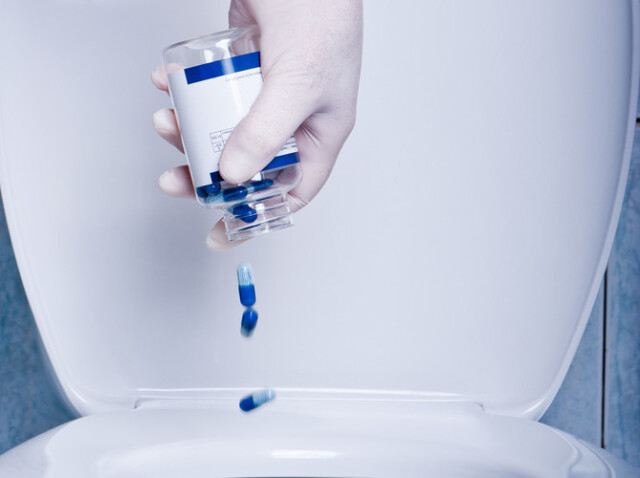Flushing Medications Harms Your Septic System

Many houses in more rural settings are too far away from typical sewer lines to be connected to a bigger network. Due to distance, these homes have to use septic tanks. If you’re reading this article about septic tanks, chances are you have one. It is important to know everything you can about flushing medications and other unwanted items down into your septic tank.
As you may or may not know, a septic system ends with a big tank. This tank that is buried in your yard somewhere, and of course it can be different sizes. A well-designed tank will be large enough that you should only need to pump your tank every three years or so. Water will flow into the tank from one end and leave from the other.
BACTERIAL ENVIRONMENT
A septic tank has its own bacterial environment complete with all kinds of gases. These gases are the result of bacteria breaking down any organic material which flows into the septic tank. So, a septic tank is actually something of a living entity.
Heavier waste will sink to the bottom of your septic tank after it flows in. The liquid waste will flow through your septic tank’s exit pipe. From the exit pipe, liquid waste goes out into a drainfield. The drainfield is usually comprised of a series of pipes that spread out the liquid waste. That liquid waste exits the drain pipe, usually into some sort of rock or gravel clearing.
Many people like to use their toilets to get rid of unwanted items such as goldfish, organic waste, and even medication. There are many obvious problems with using your toilet as a disposal system. One, of course, is that objects like goldfish, tampons, etc., can clog up your septic tank fairly quickly, causing it to back up or overflow.
FLUSHING MEDICATIONS
Another negative side effect, specifically of flushing medications, is that medications can harm the environment, killing plant and animal life. In addition, chances are that that your septic tank is near a water source. Medications contaminate liquid waste, seeping into the ground and potentially contaminating that nearby water source.
Typical over-the-counter medications will not cause too much of an issue. However, you need to watch out are “antibiotics and certain strong medications, such as those used in chemotherapy [because they] can affect the operation of your system.” This is because the chemicals in your medications can affect the growth of the bacteria we mentioned earlier. That bacteria, as stated previously, breaks down your organic waste very efficiently and helps to slow the accumulation of what is known in septic tanks as the “sludge layer” – the remains of the solid waste which your body produces.
To keep your septic system healthy, make sure you properly dispose of your medications. There are always places within your community that offer to take in unused medication to be properly disposed of. If you cannot reach your community medication program, you can crush up your medicine and place it with some undesirable substance, usually kitty litter, in a sealable plastic baggie. This will help to prevent animals from thinking it is edible and trying to consume whatever is in your trash. Then you can simply throw out that plastic bag with your regular garbage.
